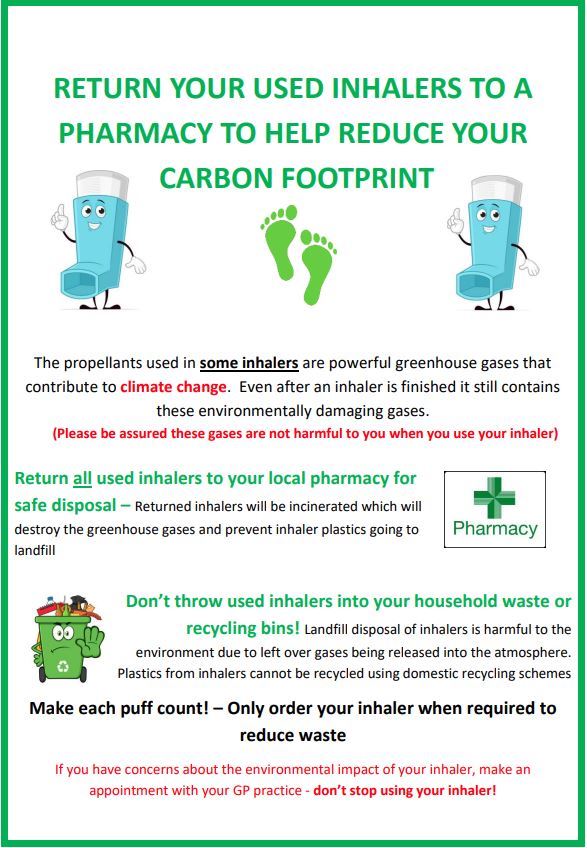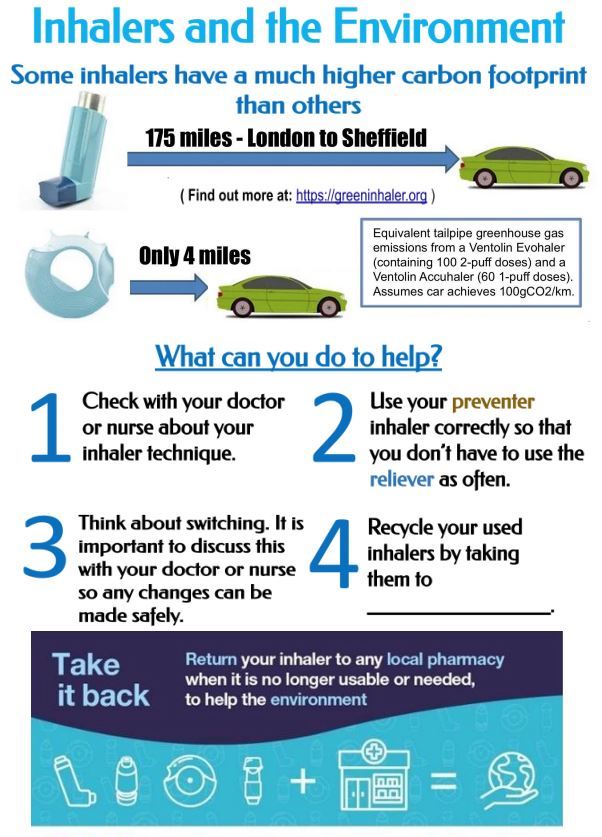Asthma Campaign
Non-urgent advice: Green Inhaler Campaign
Recycling inhalers and the NHS’ carbon footprint
We can recycle our inhalers more than we do now. Take your empty inhalers back to the pharmacy, so they can dispose of them appropriately. Find out what do with used inhalers.
The key points I make to my patients when considering the environmental impact of their medicines, including inhalers, are the following:
1. The best thing that you can do for the environment is to keep your asthma under control.
Repeated appointments with your GP, emergency care and hospital admissions are more likely to increase your carbon footprint. However, don’t miss out on these if you need them! It’s also important not to stop taking your inhalers because your worried about the environment – stopping using your existing aerosol inhalers could be very damaging to your health.
2. The worst thing you can do is not to take your preventer medicines regularly.
By taking them every day, as prescribed, they will do their job by dampening down the inflammation in your airways and helping to prevent symptoms and asthma attacks.
3. Make sure you’re taking your inhalers correctly.
Check your inhaler technique with your asthma nurse, GP, pharmacist and by watching our inhaler technique videos. By not using the best technique possible, you may be wasting medicine and getting less of the benefits of your inhaler. You’re also more likely to get side effects, such as a sore throat and thrush.
4. Act early if you’re getting asthma symptoms.
By delaying help, you are more likely to need even more medicines and support to get back to normal. You’re also putting yourself at risk of an asthma attack and an admission to hospital. Follow your asthma action plan, so you know what action to take and when to seek help.
The NHS has a lot of areas where it can reduce its carbon footprint and is continuing to make changes for the better. One area we are keeping an eye on is a scheme aimed at GPs around the prescribing of inhalers.
We know that some inhalers have a bigger impact on the environment than others. This is based on the gases they contain. GPs are being asked to reduce the number of gas-containing inhalers (you may know these as metered-dose inhalers or MDIs) and increase the number of powder-based inhalers (known as Dry Powder Inhalers or DPIs). They have not been told to stop prescribing certain inhalers, just to get more people on to DPIs.
For most people, this change may be appropriate – it may be an easier inhaler to use, it may allow the medicines to work better and may help to control their asthma better. It’s crucial that any change of inhaler device includes a clear demonstration of how to use the inhaler and a check to see whether they can use it correctly.

